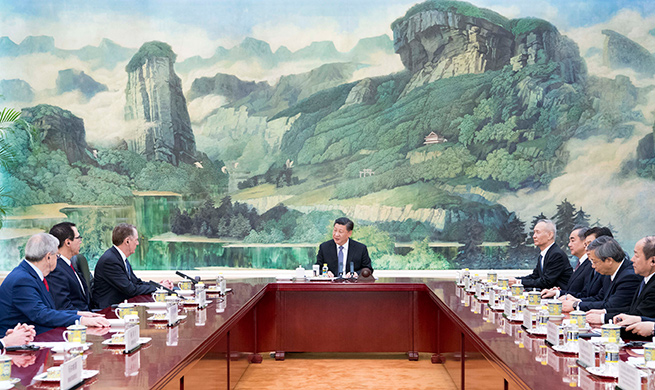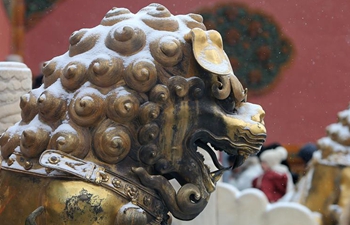by Eric J. Lyman
ROME, Feb. 17 (Xinhua) -- Leading members of one of the two political parties supporting Italy's government set off a new round of speculation over whether the country might dip into the world's third largest gold reserves as a way to reduce the country's burgeoning budget deficit.
Claudio Borghi, chairman of parliament's budget committee and a member of the nationalist political party, the League, recently introduced a proposal that would give the government power to sell some or all of the Italian government's more than 2,500 metric tons of gold.
IMPACT OF SPECULATED SALE OF GOLD RESERVES ON MARKET
Based on the price of gold at the end of trading last Friday, the value of Italy's gold reserves -- the third largest in the world behind the United States and Germany, according to the World Gold Council -- is around 106 billion U.S. dollars (94 billion euros).
That amount could have a major impact in Italy. Last year, for example, the country clashed with the European Commission for eight weeks before begrudgingly reducing the planned 2019 budget deficit to 2.04 percent of gross domestic product from 2.40 percent.
The difference between the two figures is worth around 7.1 billion euros (8.1 billion U.S. dollars) -- a figure covered by the gold reserves many times. At current spending levels, the reserves could reduce the budget deficit to zero for two consecutive years.
That does not mean a sale of all or part of the gold reserves is imminent. Furthermore, most analysts say it would be a mistake for Italy to sell even part of the reserves.
"If Italy started selling the gold it would be bad for Italy's image as a stable economy, and bad for financial markets," Cesare Imbriani, a political economist with Rome's La Sapienza University, told Xinhua.
Imbriani noted that if any major country moved to sell part of its reserves it would push world gold prices lower, diminishing the value of the remaining reserves, and having a ripple effect on world financial markets.
In 2013, for example, Cyprus, which has only 14 metric tons of gold reserves, worth around 590 million U.S. dollars (525 million euros) today, sent world gold prices reeling when the country mulled selling its bullion.
GOLD RESERVES, A SAFEGARD AGAINST EMERGENCY
Giandomenico Piliso, a professor of economic history at the University of Siena, said it would also eliminate the country's hedge against fiscal emergency.
"The value of the gold reserves is not just symbolic," Piliso said in an interview. "The reserves are a hedge against problems the euro may have and to balance risk from other state assets. It's a safeguard against emergency."
Does the current situation in Italy -- featuring slow economic growth, political uncertainty, and repeated clashes with the European Union and its member states -- classify as an emergency?
"No, this is not an emergency situation," Hildebrandt and Ferrar chief economist Javier Noriega told Xinhua. "Italy finds itself in a difficult situation to be sure, but you can't say it's a national emergency. A lot of the problems are created by Italy itself."
League officials like Borghi said the parliamentary initiatives they are pushing are not a precursor to selling off gold reserves, but only to clarify ownership of the precious metal. Borghi said his proposal is ultimately aimed at making it clear the gold reserves belong to the citizens of Italy, and not to the government or the Bank of Italy.
Matteo Salvini, Italy's deputy prime minister and head of the League, agreed, stating that "it is important to declare that the gold belongs to Italians."
The last time Italy used the gold in its reserves was 43 years ago when the Bank of Italy used 543 tons of gold as collateral for a loan from West Germany's Central Bank. The loan was repaid and the gold was not touched.













